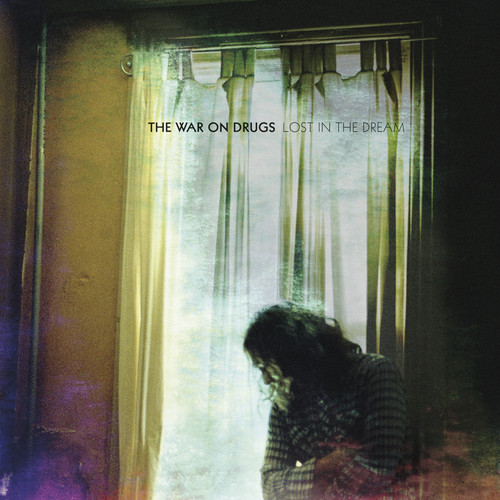
The War On Drugs
Lost In The Dream
(Secretly Canadian)
4 out of 5 stars
Stream the album
Videos by American Songwriter
If HBO’s The Wire taught us anything, it’s that the war on drugs navigates a lot of gray area. I don’t know if Adam Granduciel had anything like that in mind when he decided to start a band called The War On Drugs, but his songs often exist in a similar kind of gray area, a sense of purpose that’s rarely delivered with any sense of directness. His odes to heartlanders like Dylan, Petty and Springsteen come packaged in nebulous bursts of sound, but “bursts” is probably too strong a word. On the band’s gorgeous third full-length, Lost In The Dream, the layers and layers of textures seep into the room and slowly envelop it before dissipating back into the ether. As a title, Lost In The Dream pretty much nails it.
Granduciel started The War On Drugs with fellow Philly musician Kurt Vile, who’s enjoyed a successful solo career since leaving the band’s ranks after their 2008 debut Wagonwheel Blues. Meantime, The War enjoyed a breakout moment in 2011 with Slave Ambient, a record collector’s record that takes classic rock tropes and colors them with more modern indie-rock sensibilities, straddling eras and stitching together influences with origins that are often separated by decades. Lost In The Dream doubles down on its predecessor’s adventurous side, and it’s War On Drugs’ most engrossing album thus far.
As far as disparate influences go, there are the dream-pop flourishes that often serve as segues, like the final third of the 9-minute opener “Under The Pressure,” and there are the psychedelic-lite tracks like “Red Eyes.” For “An Ocean In Between The Waves,” imagine Neil Young given Krautrock’s motorik backdrop, while the title track is a straight-forward piece of mellow ramblin’ rock. Granduciel’s vocals and lyrics are as direct on Lost as they’ve ever been, but that’s all relative; his voice is still bathed in effects, swimming through the mix rather than floating atop it. Lyrically, there’s still a lot to parse (“Like a snowflake through the fire/ I’ll be frozen in time,” he sings in “Suffering”). But while it comes close often, Lost never fully lets go of its classic rock footing to delve fully into art rock. Instead, we get a brilliant record that serves as a perfect blueprint on how to make something new out of something old.
This article appears in the March/April issue.













Leave a Reply
Only members can comment. Become a member. Already a member? Log in.